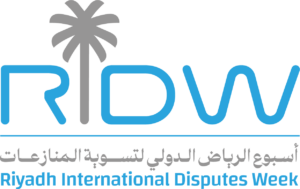In recent years, the Kingdom of Saudi Arabia (“KSA”) has experienced a significant surge in construction projects and notable developments in its energy sector. The unveiling of new Smart Sustainable Cities and Special Economic Zones, aimed at enhancing business prospects, underscores the KSA’s commitment to fostering strategic sector development and attracting high-quality investments. These initiatives have positioned KSA as a pioneering global investment destination.
As part of its Vision 2030, and in order to attract more foreign investments, the KSA has significantly aligned its legal landscape with international standards to reassure both local and foreign investors. The Arbitration Law of 2012 (“Arbitration Law”), inspired by and modeled after the UNCITRAL Model Law On International Commercial Arbitration, was crafted to offer foreign investors with a reliable and efficient mechanism for resolving potential conflicts. The Arbitration Law contains some innovative provisions inspired by the UNCITRAL Model Law, constituting an important step towards modernisation. This step, however, to some extent, is mitigated by those more restrictive provisions that are influenced by Shariah law in Saudi legislation. For example, the Arbitration Law explicitly states that, at all times, arbitration proceedings are to comply with the principles of Shariah law. Arbitrators, or at least the presiding arbitrator in case of a three-members tribunal, who should hold a university degree in the Shariah or the Islamic legal sciences (fiqh), must ensure the application of the law and the procedural rules do not contravene the principles of Shariah law. It is also worth noting that the Saudi courts may not enforce arbitration awards that conflict with Shariah law and public policy.
For foreign investors, an additional layer of reassurance comes from the KSA’s status as a signatory to the United Nations Convention on the Recognition and Enforcement of Foreign Arbitral Awards (“New York Convention”), increasing the likelihood of enforcing foreign arbitral awards in the KSA. The establishment of the Saudi Center for Commercial Arbitration (“SCCA”) further demonstrates the KSA’s continuous efforts to creating an environment conducive to resolving investment disputes through alternative dispute resolution mechanisms.
With 21 Bilateral Investment Treaties (“BITs”) currently in force, another layer of legal protection is added with the KSA Foreign Investment Law (“FIL”). This legislation encompasses substantive provisions designed to safeguard the interests of foreign investors, such as the right to repatriate profits, entitlement to fair compensation in cases of expropriation, and the right to information, among others. Remarkably, the FIL does not prescribe a specific dispute resolution mechanism. Instead, it encourages amicable settlements wherever possible (Article 13, FIL). As the KSA continues to evolve as a key player in the global investment landscape, the combination of a robust network of BITs and a forward-thinking FIL positions the KSA as a secure haven for investors.
A more recent milestone in the KSA’s legal modernization journey is the enactment of the new Saudi Civil Code. The new Civil Code has incorporated long-standing principles such as good faith and abuse of rights as outlined in Articles 95 and 29. Notably, the new Civil Code places a strong emphasis on good faith as a guiding principle throughout both precontractual and contract performance stages. Article 41 of the Civil Code also prohibits engaging in negotiations in bad faith, which encompasses actions such as withholding crucial contract information or displaying signs of lack of seriousness. In such cases, the party engaging in bad faith negotiations becomes liable for the resulting damages incurred by the other party.
When it comes to construction and energy contracts in the KSA, the legal landscape is shaped not only by the new Civil Code but also by new sector-specific regulations. These regulations not only mirror international standards but also incorporate principles deeply rooted in Sharia law. Saudi courts have embraced fundamental tenets of international construction law, recognizing key principles like the contractor’s entitlement to delay damages and the extension of time mechanism. The recently revised Saudi Building Code also holds contractors accountable for latent and hidden defects that may emerge after project completion. The incorporation of these principles into the Saudi legal framework is a clear testament to the KSA’s dedication to align its laws with contemporary international standards, a strategic move aimed at attracting investors and reinforcing trust and confidence in the Saudi business environment.
The introduction of modernized legislations marks a pivotal step towards fostering a more efficient and internationally aligned legal framework, enhancing investor comfort and solidifying the KSA’s position as an attractive investment destination.

We look forward to attending the SCCA24 Conference!
________________________
To make sure you do not miss out on regular updates from the Kluwer Arbitration Blog, please subscribe here. To submit a proposal for a blog post, please consult our Editorial Guidelines.


